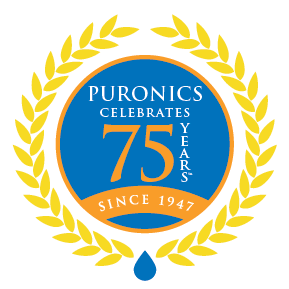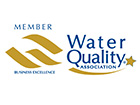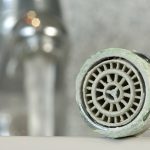Last Updated on April 12, 2021
When it comes to water treatment, you have many options. How do you know which is right for you? We’ve outlined some of the questions you should ask to help make your decision clearer and easier.
Where Does My Water Come From?
Asking where your water comes from is the first step in finding out what type of water treatment system you need. Does it come from a public or private source? Does the water already undergo basic filtration and treatment for contaminants like silt and bacteria, or is that up to you? Knowing where your water comes from is crucial to finding the answer to the next question.
What’s in My Water?
If your water comes from a public or municipal source, you probably receive or have electronic access to a Consumer Confidence Report. The U.S. EPA requires most community water systems to publish these annual water quality reports. For more information on what to look for, check out our blog post How to Know What’s in Your Water. If your water comes from a private well, you should have your water tested for contaminants by a state-certified laboratory. In fact, the Water Quality Association (WQA) recommends private well owners test their water every year.
Point-of-Use or Point-of-Entry? Or Both?
Based on the contaminants that are causing concern, you need to decide if you want all the water that enters your house treated, or only at certain places, or both. Whole-house filters can remove contaminants such as calcium, chlorine and iron from entering your home and causing problems throughout the house. Certain contaminants, such as arsenic and lead, are more of a concern with your drinking water, and a reverse osmosis system at the kitchen sink may be all you need. If you prefer the taste of purified water and have hard water, you’ll likely want both. If you have well water, you may need multiple point-of-entry systems to ensure you have safe, clean water throughout your home.
Is the Product Certified to Remove the Contaminants of Concern?
The National Sanitation Foundation (NSF) has established standards for a variety of water treatment products and contaminants. You want to ensure that whatever product you are purchasing will do what it says. There are several independent organizations that can certify products besides NSF. These are the WQA, the International Association of Plumbing and Mechanical Officials (IAPMO) and Underwriters Laboratories (UL). Make sure the products you are purchasing have been certified by one of these organizations to remove the contaminants of concern.
We hope these questions help guide you in finding the right water treatment solution based on your needs. If you need more information or have other questions, feel free to contact us or read our other blog posts. Puronics is happy to help solve your water problems!
© Copyright 2021 Puronics, Inc. All rights reserved.

 Puronics, Incorporated
Puronics, Incorporated




I hadn’t thought of checking if the product for my water purification is certified. I live in a city where the water is so bad that we need to buy water bottles, but it’s always been so expensive so I tried to find another solution to that so I heard about purifying my water before it coming out of the sink, so I want to try it out. Thanks for talking about the questions we should ask to make sure the service works, I’ll keep them in mind.